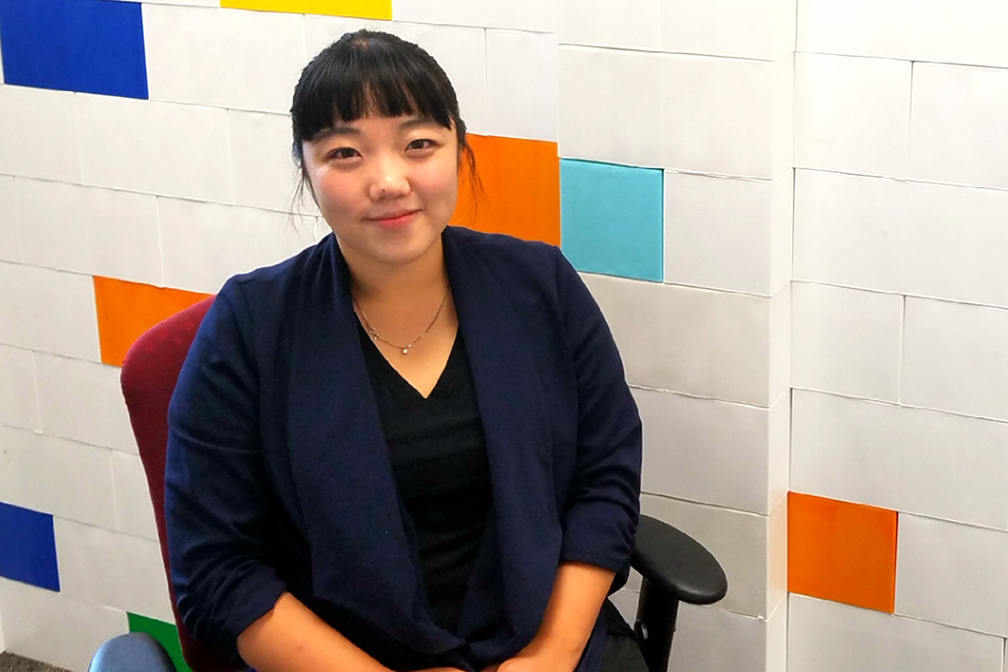Faculty Spotlight: Koeun Choi
October 2, 2018

Koeun Choi joined Virginia Tech’s Department of Human Development and Family Science in the fall of 2018 as an assistant professor. After receiving an undergraduate degree in family and child studies/psychology from Seoul National University, South Korea, and a doctorate in human development and family studies from the University of Wisconsin–Madison, Choi completed two years of postdoctoral training at the University of California, Riverside and Rutgers University–Newark.
What are your research interests and why are you passionate about them?
My research program aims at understanding how children learn in a complex and dynamic digital media environment. Digital media have become a universal part of children’s environments across all socioeconomic strata. Learning with digital media technology is a critical part of cognitive development because of its significance for various problem-solving activities in our everyday lives. My goal is to connect cognitive development and media technology to explain and support children’s learning. To tackle these questions, I employ multiple methods, including experiments, individual difference measures, eye-tracking, and computational and machine learning approaches.
What would you like the public to know about your research? Why is your topic important?
Emerging technology such as touch-screen applications targeting young audiences has broadly motivated my research. While over a decade of research has demonstrated that infants and toddlers have difficulty learning from traditional, noninteractive screens as compared to real-life experiences, researchers understand little about very young children’s learning from interactive media. My work provided initial empirical evidence to support the educational potential of media technology and to reveal underlying cognitive mechanisms.
What are you most looking forward to in your new role at Virginia Tech?
My work takes an interdisciplinary perspective and integrates a variety of methodological approaches and theories from related disciplines. My interdisciplinary research program on cognitive development and digital media complements the work of many faculty members in the Department of Human Development and Family Science. Further, its interdisciplinary nature aligns well with Virginia Tech’s university-wide, multidisciplinary Beyond Boundaries initiative, which focuses on such areas as Adaptive Brain and Behavior, Creativity and Innovation, and Equity and Social Disparity in the Human Condition. I am very excited about exploring potential collaborative areas.
What goals do you hope to accomplish in your first couple of years in thedepartment?
My current work combines computational modeling and data science approaches with digital media to understand children’s curiosity, exploration, and learning in a naturalistic environment. I look forward to the continued growth of my research program to address new questions in the context of collaborative research environments.
What’s your favorite part about mentoring students?
It is a great passion of mine to help students become independent scientists who are capable of conducting research from conception to completion, with the joy of learning.
How do you like to spend your free time?
I love hiking but I have not gotten a chance to hike around here yet. I am excited to explore hiking trails in Virginia. I also enjoy playing board games and video games, though I am not particularly good at them. Plus, I love watching animated movies and musicals!
What’s the most helpful advice you’ve received?
Work hard and be kind.
To learn more about Koeun Choi’s research, visit the Cognitive Developmental Science Lab(CoDeS) website.
Interview conducted by Casey McGregor, a doctoral student in child and adolescent development in the Department of Human Development and Family Science.





